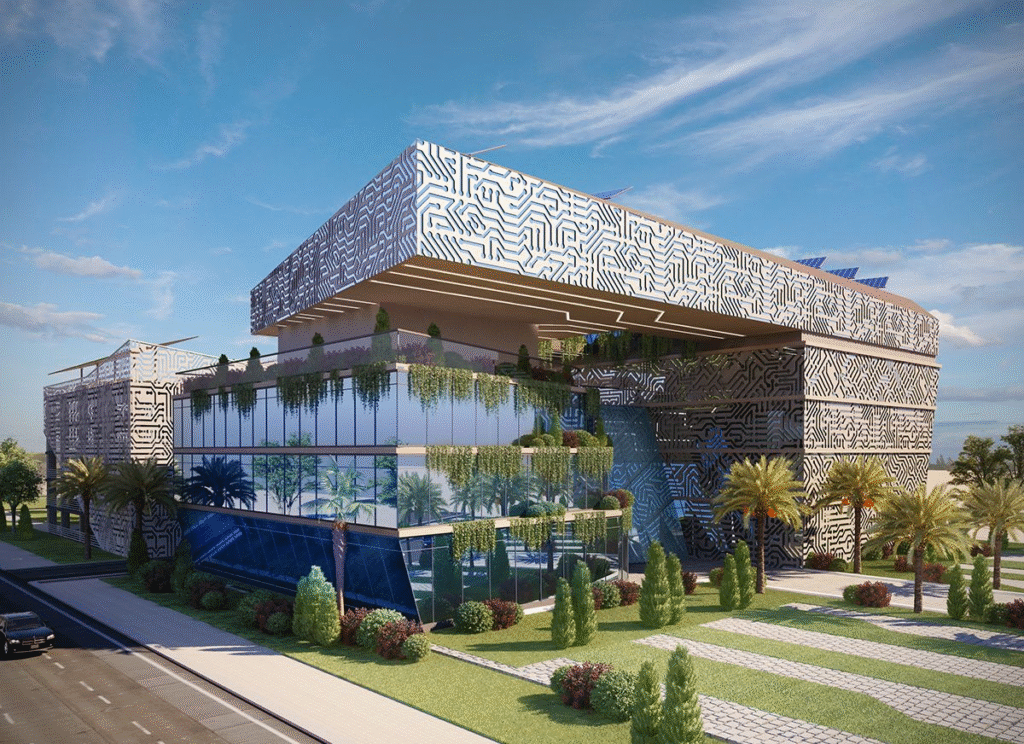Introduction

Smart cities promise to revolutionize urban life by integrating digital technologies—IoT devices, AI analytics, data-driven governance, and connected infrastructure—to optimize resource use, enhance public services, and improve quality of life. Yet, these innovations risk perpetuating or amplifying entrenched inequalities if they fail to incorporate justice and equity at their core.
Design Justice in Smart Cities is an emerging critical framework that insists on embedding social justice principles into the design, deployment, and governance of smart urban technologies. It challenges technocentric, top-down approaches by centering marginalized communities, advocating for participatory co-creation, addressing systemic disparities, and ensuring that urban innovation benefits all residents equitably—not just market-driven elites or dominant social groups.
This comprehensive analysis explores the concept of design justice in smart cities, its theoretical foundations, practical applications, tensions and challenges, and pathways toward transformative, just urban futures powered by technology that truly serves humanity as a whole.
1. What is Design Justice in the Context of Smart Cities?

Design justice originates from broader design justice theory, which critiques traditional design processes for reproducing social hierarchies, exclusion, and inequity. It foregrounds marginalized voices and lived experiences as essential sources in shaping design outcomes that foster liberation rather than oppression.
Within smart cities, design justice means:
- Equitably distributing the benefits and burdens of smart technologies.
- Prioritizing participatory design that involves communities—especially the underserved—in decision-making and innovation.
- Interrogating how power, race, class, gender, disability, and other axes influence urban data flows, surveillance, infrastructure placement, and service delivery.
- Challenging commercial and state-centric control of urban data ecosystems.
- Centering ethical, transparent, and accountable systems that resist exploitation and data colonialism.
- Designing for intersectional justice that addresses overlapping and compounded marginalities.
By embedding these principles, design justice seeks to reorient smart city development from efficiency and profitability to fairness, dignity, and collective wellbeing.
2. The Social Justice Challenges of Smart Urban Technologies

Despite their potential, smart city technologies frequently risk deepening social inequalities and exclusion:
- Reinforcement of Inequalities: Data-centric governance often privileges affluent, “data-rich” residents while surveilling or neglecting low-income communities, reinforcing existing structural racism, ableism, and classism.
- Technosolutionism and Market Dominance: Overreliance on technological fixes can obscure root social problems—like poverty, segregation, or political disenfranchisement—and advance neoliberal agendas favoring private-sector interests.
- Limited Participation and Pseudo-Engagement: Many smart city projects adopt tokenistic “citizen engagement” without genuinely ceding power or adapting solutions to diverse needs and contexts.
- Privacy and Surveillance Concerns: Mass data collection disproportionately monitors vulnerable populations, threatening autonomy and safety in marginalized neighborhoods.
- Algorithmic Bias and Discrimination: AI systems embedded in urban governance reflect and perpetuate biases present in training data and institutional frameworks.
- Digital Divides and Accessibility Gaps: Disparities in digital literacy, access to technology, and connectivity limit equitable participation in smart city benefits.
These challenges illustrate how without justice-oriented approaches, smart cities may intensify urban inequalities rather than ameliorate them.
3. Theoretical Foundations: Intersectionality and Participatory Design

Design justice in smart cities builds on:
- Intersectionality: Recognizes that individuals experience multiple overlapping forms of discrimination and privilege connected to race, gender, class, disability, sexuality, and more. Justice frameworks must address these complex interdependencies.
- Critical Science and Technology Studies (STS): Examines how power relations shape technology design and deployment, advocating for democratizing innovation processes.
- Community-Based Participatory Research (CBPR): Emphasizes co-production of knowledge and solutions with those most affected, valuing local expertise.
- Feminist and Decolonial Perspectives: Challenge dominant paradigms that marginalize non-Western knowledge and ways of living.
Integrating these ideas shifts smart city design from controlling “users” toward empowering co-creators who define technology’s role on their terms.
4. Practical Strategies for Design Justice in Smart City Development

4.1 Inclusive and Community-Led Design Processes
- Establish long-term, trust-based partnerships with marginalized communities.
- Co-create problem definitions, innovation agendas, and technology solutions.
- Employ accessible engagement formats—language translation, culturally relevant facilitation, decentralized meetings.
- Prioritize distributed leadership instead of top-down mandates.
4.2 Data Equity and Governance
- Ensure transparent data collection, usage, stewardship, and ownership models.
- Equip communities with tools to access, understand, and control urban data affecting them.
- Develop ethical AI frameworks that audit and mitigate bias.
- Design data infrastructures that protect privacy and consent.
4.3 Affordable and Accessible Technologies
- Develop solutions addressing digital divides in connectivity, skills, and device access.
- Prioritize open-source, low-cost technologies adaptable to local contexts.
- Avoid technology implementation that increases user burdens or costs.
4.4 Multi-Dimensional Urban Justice Integration
- Connect smart city projects with housing justice, environmental equity, labor rights, and cultural preservation.
- Recognize urban services and infrastructures as social commons rather than commodified products.
- Foster policies ensuring equitable service provision across neighborhoods.
4.5 Art, Culture, and Storytelling Integration
- Use community arts organizations to articulate marginalized experiences and visions.
- Embed local narratives and cultural expressions in smart city interfaces and data visualization.
- Cultivate culturally sustaining technologies that celebrate diversity instead of enforcing homogenization.
5. Exemplars and Case Studies

- Participatory Sensing in Barcelona: Community-led platforms enable residents to monitor air quality, noise pollution, and urban livability, influencing municipal decision-making with grassroots data.
- Equitable Digital Infrastructure in Nairobi: Initiatives focus on affordable internet access and low-tech innovations to bridge digital divides in informal settlements.
- Data Justice Projects in New York City: Collaborative frameworks ensure transparency and accountability in surveillance programs disproportionately affecting communities of color.
- Community Art and Co-Design in Chicago: Partnerships with arts organizations empower marginalized residents to shape public space technologies embedding social and environmental justice.
- The My Neighborhood Platform, India: A citizen-centered digital platform facilitating local engagement on health, environment, and mobility issues through design thinking and gamification.
These examples illustrate varied pathways to embed design justice principles in smart urban contexts.
6. Challenges and Ongoing Tensions
- Institutional Resistance: Bureaucratic inertia and vested interests may resist power redistribution and transparency.
- Scaling Deep Participation: Sustaining meaningful community involvement across large, diverse urban populations is complex.
- Balancing Innovation and Equity: Push for rapid technological progress can sideline justice concerns.
- Funding Constraints: Justice-centered initiatives often lack sustained financial backing compared to market-driven projects.
- Global North Bias: Scholarship and projects often disproportionately reflect experiences from wealthy countries, marginalizing Global South realities.
7. The Future of Design Justice in Smart Cities

- Intersectional Justice Frameworks: Increasing adoption of frameworks explicitly addressing race, gender, class, and ableism in technology governance.
- Decentralized Data Commons: Community-managed urban data infrastructures that empower collective ownership and management.
- Human-Centered AI: Continued advances in explainable AI and ethical algorithms co-developed by diverse populations.
- Regulatory Innovations: Implementation of policies mandating social impact assessments and equitable technology deployment.
- Networked Grassroots Movements: Emergence of translocal networks and coalitions advocating for just smart city futures.
- Integration with Climate Justice Movements: Smart city design aligned with environmental sustainability and social resilience goals.
Conclusion
Design justice in smart cities is an essential corrective to prevailing technological and governance paradigms that risk deepening exclusion, surveillance, and inequality. It demands a fundamental reimagining of how cities deploy technology—shifting from top-down, market-driven agendas to community-empowered, intersectional co-creation.
Only by centering marginalized voices, dismantling systemic inequities, and fostering transparent, inclusive design and governance can smart cities fulfill their promise of improving quality of life for all residents.
Embracing design justice paves the path to urban futures that are innovative not only technologically but also profoundly humane, equitable, and sustainable.
For specialized expertise on implementing design justice principles in smart city projects, ethical technology governance, and community engagement frameworks, please contact:
Mishul Gupta
Email: contact@mishulgupta.com
Phone: +91 94675 99688
Website: www.mishulgupta.com
